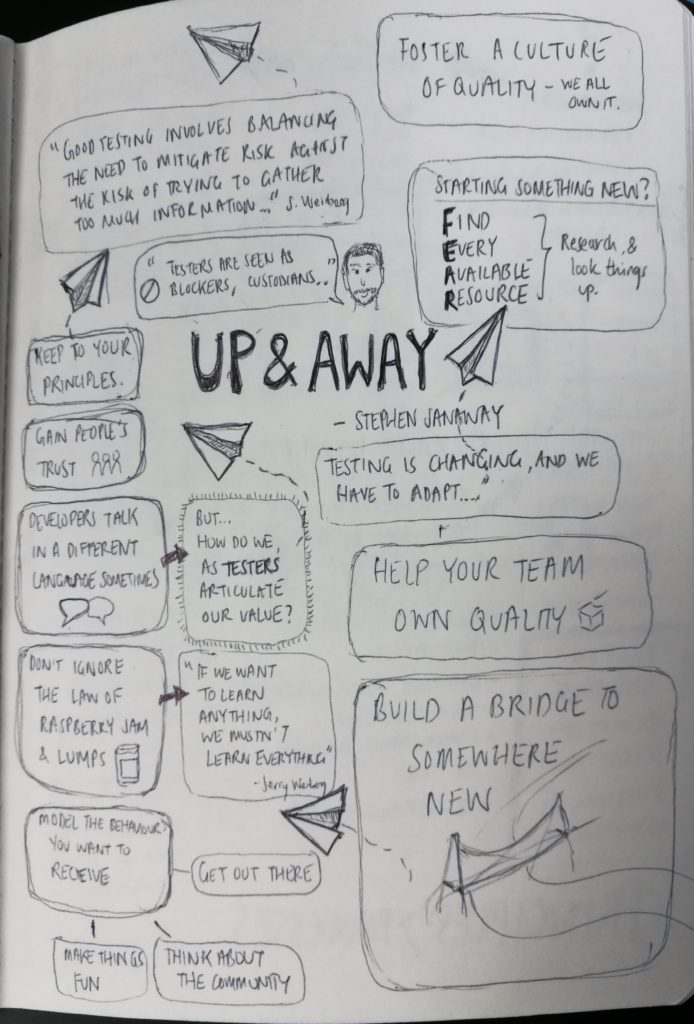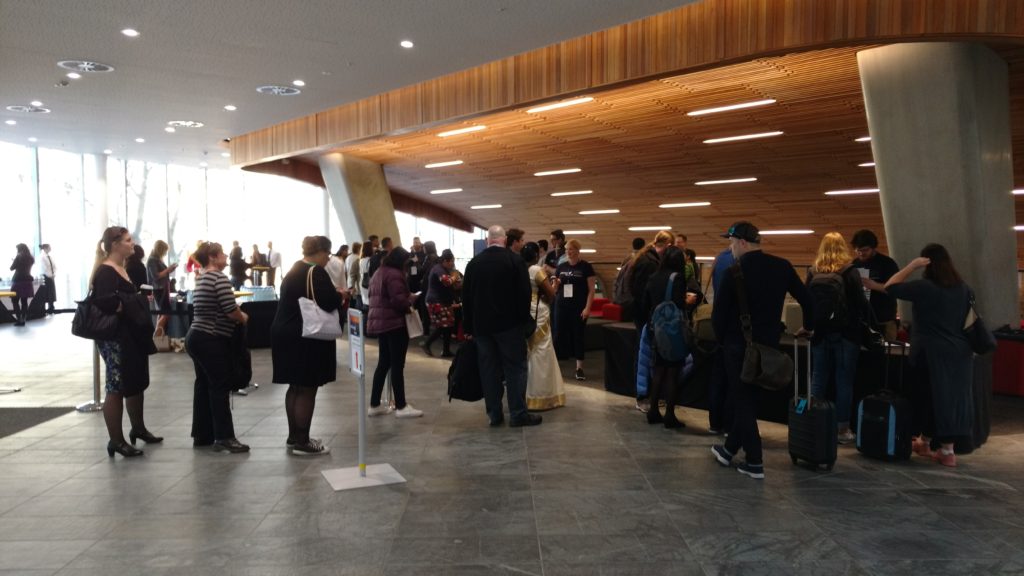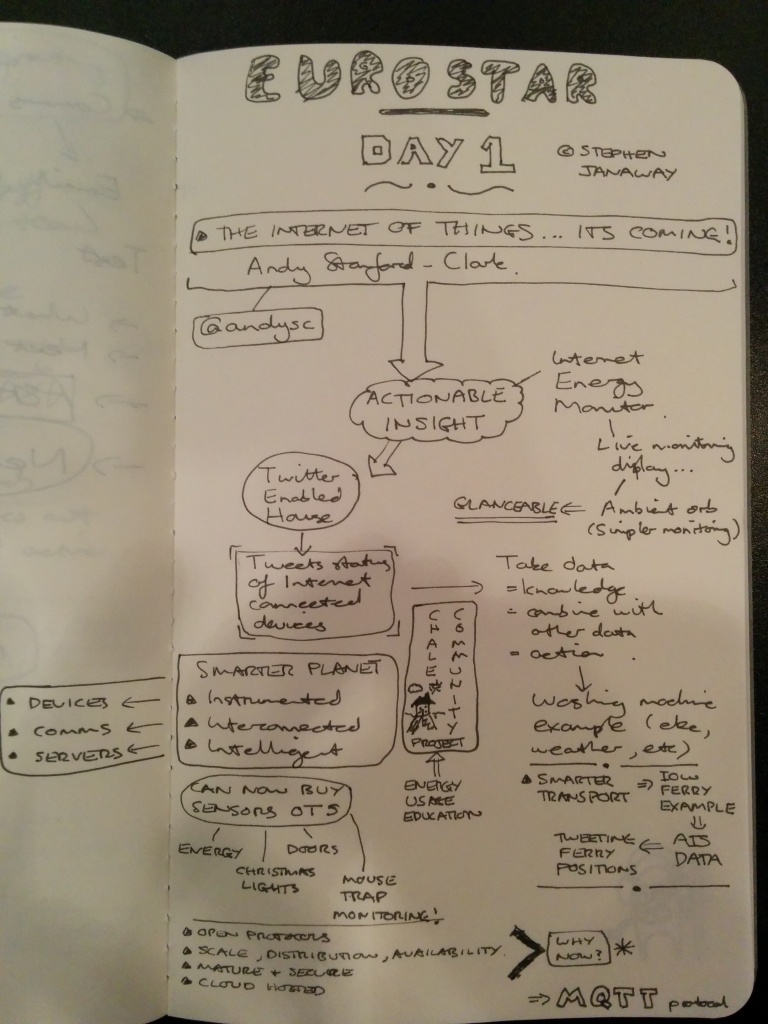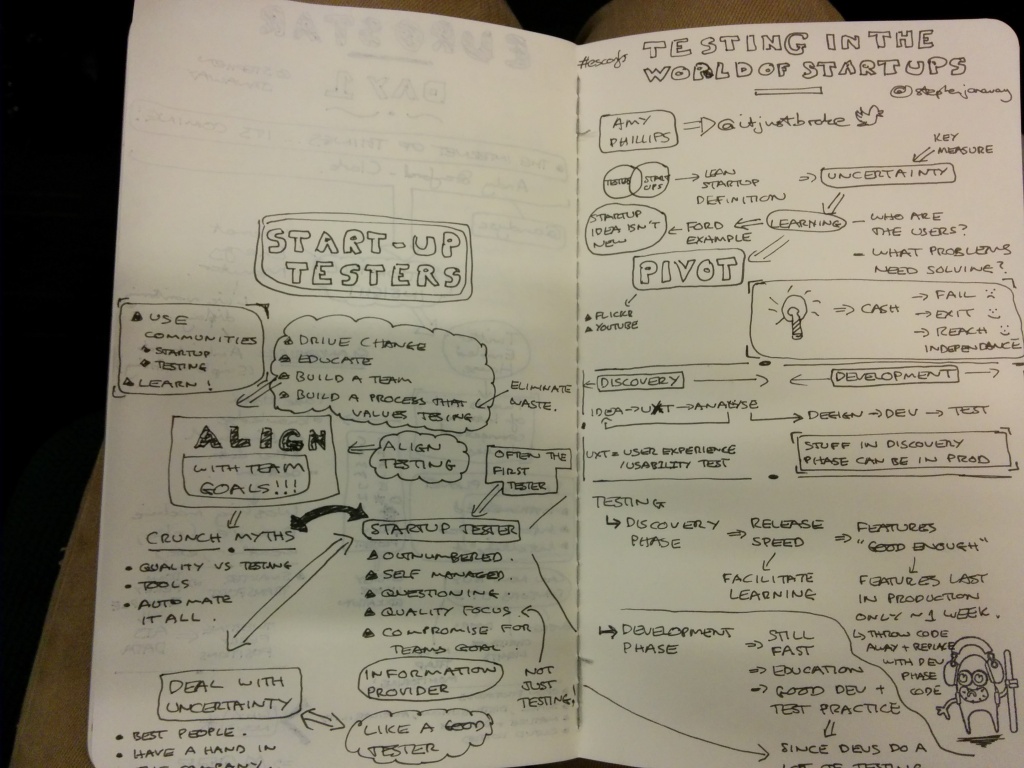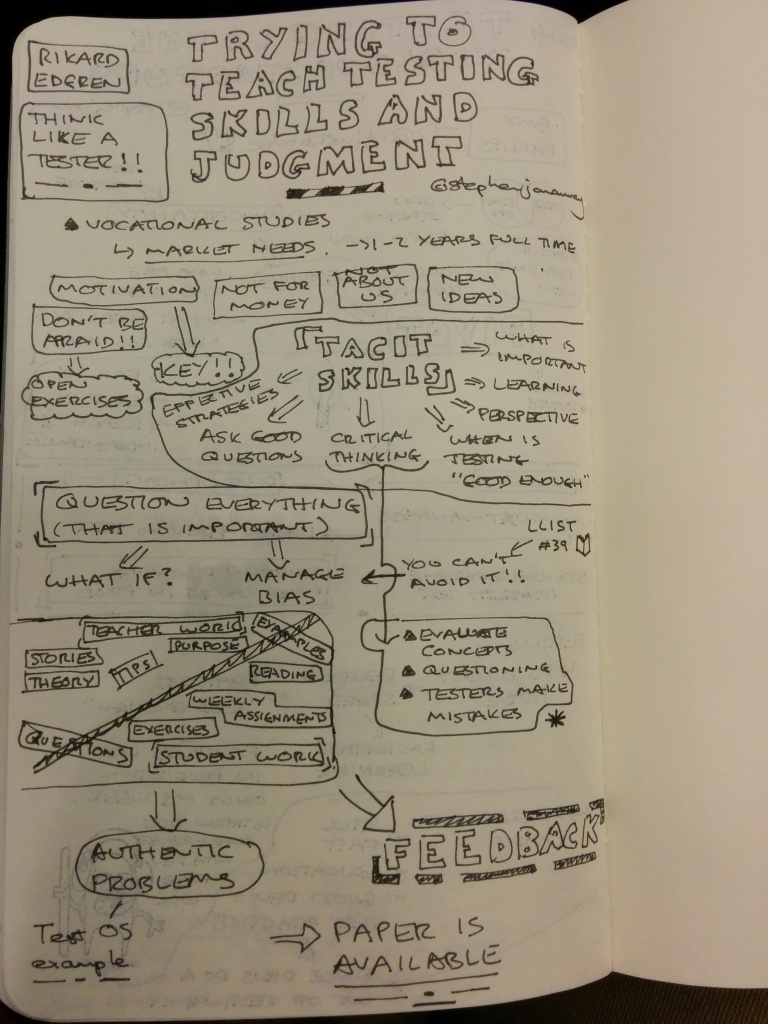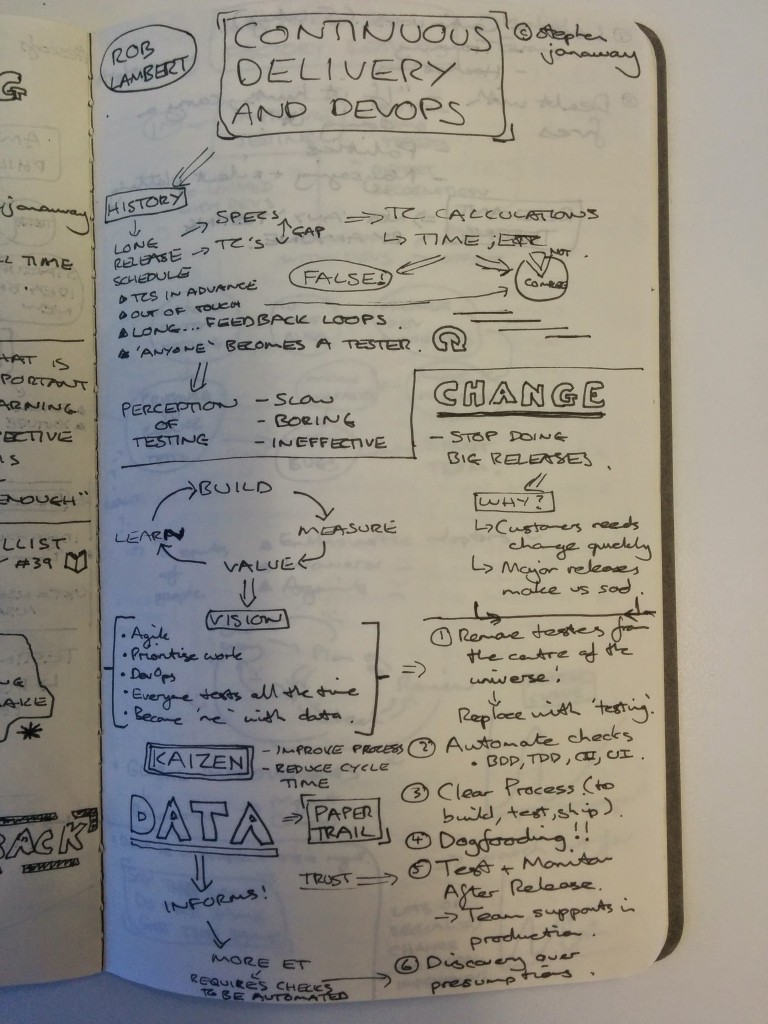It’s taken a while to write this. Not because I don’t have a head full of new ideas from TestBash but simply because it’s taken time to digest everything, put everything into a sensible order in my head, and come to come conclusions about the day.
If you hate long blog post then just read this bit 🙂
The Condensed Version
TestBash is great. It’s one of the friendliest conferences I’ve been to – people talk to each other, most people are really engaged in what they do, and it’s really easy to strike up a conversation with a complete stranger about something that you’ve seen or experienced. You should go if you haven’t already. Plus they video everything (and hopefully it’ll be online here soon).
The Long Version
Still here? Then read on….
I was lucky this year – I had the opportunity to speak again. Last time, in 2013, I was petrified. This time I’d spoken at a few more conferences and so I was altogether more calm and collected. From a personal point of view, one of the main reasons this was great was that it meant I focused more on the presentations that were on before mine. In 2013 I couldn’t tell you much about any of them. This time more of them went into my head 🙂
As usual I tried to write some mindmaps as the presentations took place. One great thing about TestBash is that there is only one track – and this means no difficult decisions about who to see, or annoying clashes. And from a presenters point of view it means you know how many people you will present to, i.e. everyone 🙂
So, here goes, my take on the day and what I saw.
Lean Coffee
If you come to TestBash and you don’t get up early and go to the Lean Coffee then you are really missing out. In fact more this time, there was also bacon 🙂 I love Lean Coffee, it’s a great way for people to get together and talk about what interests the group. We had some great discussion on a variety of testing topics and the whole event was really well attended this year, with lots of tables full of happy testers.
Then it was time to head on into the main auditorium for a day of talks.
The Rapid Software Testing Guide to What You Meant To Say – Michael Bolton
I started off trying to mindmap Michael’s presentation and then remembered why I don’t try and write mindmaps for Michael’s presentations 🙂 There’s so much information that it’s much better to sit back, watch, and then wait for slides or videos afterwards. In this presentation Michael took us through a whole bunch of statements on testing and software development, then dissected them, put them into Rapid Software Testing context, then reassembled them to show what should have been said. There was some great stuff in there – watch the video from the TestBash website when it is available. If you want to see a very small mindmap then here it is 🙂

Bug Detection – Iain McCowatt
Iain always gives a good presentation and in this one he took us through bug detection, from the perspective of tacit and explicit knowledge, the work of Harry Collins, and Dual Process Theory. Click on the thumbnail to get a full sized mindmap.

Re-running the ‘Are you a mac or a PC? battle … for iOS and Android – Sally Goble & Jon Hare-Winton
Sally and Jon from The Guardian took us through an entertaining presentation about the differences between iOS and Android, and how The Guardian approach mobile testing as a result. There were some interesting points in the presentation, and I really liked the gameification in the presentation as well, even if it did end up as a draw 🙂 Given more time then it would have been great to have seen some more detailed mobile testing information, but it was a fun presentation nonetheless.
Click on the thumbnail to get a full sized mindmap.
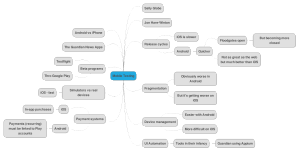
What’s In a Name? Experimenting With Testing Job Titles – Martin Hynie
I’d not met Martin before TestBash but got talking to him at the tester meetup the night before. His presentation was fascinating and explained how he had experimented with job titles and the effect that it had on how testing and testers were perceived. The results he presented were really interesting and certainly made me think more about what job titles and names really mean. I’m sure we’d all like to think that being called testers is great and people will always accept the value we know we bring, but perhaps that is not always the case.
I didn’t mindmap Martin’s presentation. It was before mine 🙂
Why I Lost My Job As a Test Manager and What I Learnt As a Result – Stephen Janaway
I spoke about my experiences of losing my job as a Test Manager. and shared my experiences of going through the transition. Being someone who now works in an organisation where there are no Test Managers meant that I was able to give my take on the future of Test Management, a future that I think does not, and probably will not, include the Test Management role in the way that it does today. I spoke about the changes that the organisation made in order to keep a focus on testing; things like test communities, a coaching role, and mentoring.
No mindmap obviously. I was busy 🙂 If you’d like to see the presentation then there will be a video on the TestBash website but why not come and see it live? I’ll be presenting a longer version at both Nordic Testing Days and EuroSTAR this year.
Myths and Legends of Software Testing – Vernon Richards
The legend that is TesterFromLeicester confronted some of the myths that we all experience as part of testing. With added tutu gags. Vernon gave us some great ways of confronting common myths and challenging those who share them. Watch the video – it’s great.
Quality doesn’t belong with the tester! – Maaret Pyhäjärvi
Maaret gave a really interesting presentation on how she has tested in a team with one tester. She gave some great hints and tips, and explained how her approach changed as a sole tester, and how the developers also approached quality as a result.
Getting Rid of Release Candidate Testing – Matthew Heusser
Matt’s presentation really interested me because we’d gone through the same transition in the past year and so I’d seen the arguments for and against. Primarily it was the testers who were more concerned about getting rid of release testing, and so it was interesting to see Matt’s take. I also liked his presentation style, using no prepared slides but drawing them on a iPad as he went. Really unique and it worked.
Click on the mindmap to get a larger version.

Automation in Testing – Richard Bradshaw
Richard took us all through his experiences in automation. I found it really interesting that he had first tried to ‘automate everything’ before understanding more about the differences between checking and testing, and how automation should be used to add value to software testing, not ‘be’ software testing. I didn’t get the chance to mindmap Richards presentation so take a look at the video when it’s available.
The Art of Asking Questions – Karen Johnson
We finished up the presentations with Karen, who sat on the stage and quietly and confidently gave us some great advice. She explained about how to ask questions, gave us a lot of really useful reading material, and explained in lots of details why asking questions in the right way is so important. You can find her slides on Slideshare and I’d really recommend reading them and following the links.
And the Rest
The 99 second talks were really great as usual. A real mix of topics, delivery styles and delivery. If you haven’t presented before then 99 second talks are a great way to get started and seeing so many new people up there and speaking was good to see.
Overall I love TestBash. It’s a conference that is so friendly. There’s lots of social events, it’s single track which means everyone sees the same presentations, and the lunch really helps to get people together. If you went this year then you’ll know how good it was. If you didn’t then why not? You should go next year. You won’t be disappointed.
You reached the bottom. Here’s your ‘prize’. TestBash makes people feel like this sometimes.


